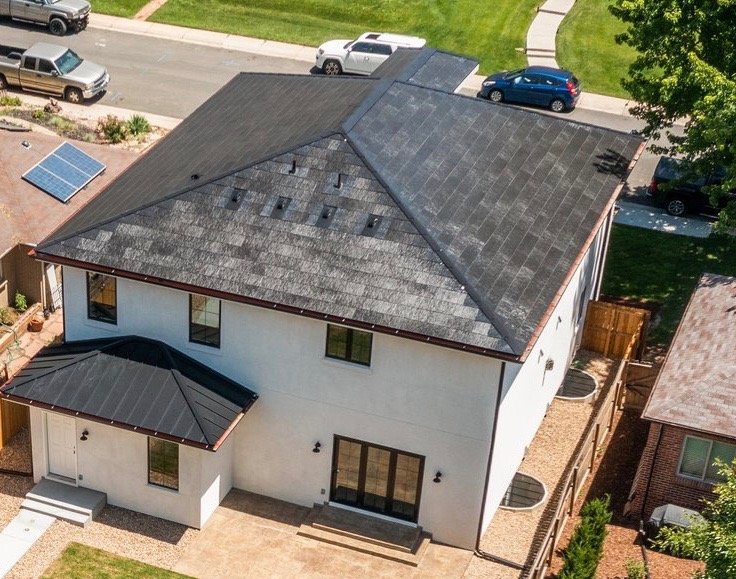
With the planet getting warmer and energy becoming scarce, there’s never been a better time to go net zero.
What is Net Zero?
Zero energy homes are just like any home—except better. They are air-tight, well-insulated, and extremely energy efficient homes that produce as much energy as they use, over the course of a year. This means that for heating and cooling, electricity, and water heating, you can say goodbye to expensive, monthly utility bills. Some months you may even receive a credit….imagine that!
In 2023, we completed our first net zero home. In order to achieve this, we implemented the following features:
Solar
Solar panels are a great source of clean energy. However, some people feel that they can detract from the aesthetic appeal of a home. With a solar shingle, you can have the best of both worlds. The Tesla solar tiles look great and provide an abundance of clean energy.
Our most recent project has a Tesla solar roof and 2 power walls. The Tesla roof is a 15 kW system and the two power walls can store up 27 kWh of power. The stored power can be used after the sun goes down.
Highly Efficient Mechanical System
Heating and cooling a home uses a significant amount of energy. To maximize efficiency, we have installed a geothermal mechanical system. This is the greenest and most cost effective heating & cooling system available. This system involves installing a closed loop system of pipes that extend hundreds of feet into the ground. By circulating water through these pipes, heat can be drawn from the air in your home in the summertime. During the winter, heat can be transferred from the ground into your home.
Insulation and Sealed Thermal Envelope
All of the penetrations are air sealed with spray foam. The walls are insulated to R 23.
The attic is unvented and conditioned. This was accomplished using spray foam on the underside of the roof. With the 2nd floor of the home having its own mechanical system, this is a much more efficient technique than the traditional method of installing blown insulation above the ceiling. This will also ensure the 2nd floor remains a comfortable temperature.
Electric appliances
The typical Denver home has a gas powered furnace, water heater and range. Since natural gas is not a clean source of energy, there will be a shift to fully electric homes in the future. With the exception of the fireplace, the appliances in this home are electric. There is a misconception that electric heat pumps don’t work well in Colorado. As technology has evolved, heat pumps have become a practical option. There is also a misconception that gas ranges are better than electric for cooking. However, based on consumer reviews, induction ranges, which is what we installed in our latest home, offer a great cooking experience with faster heat, precise control, and easier clean up.




